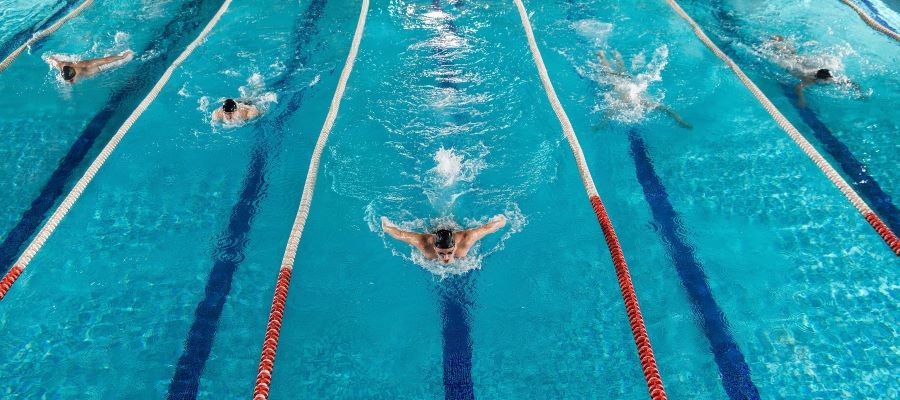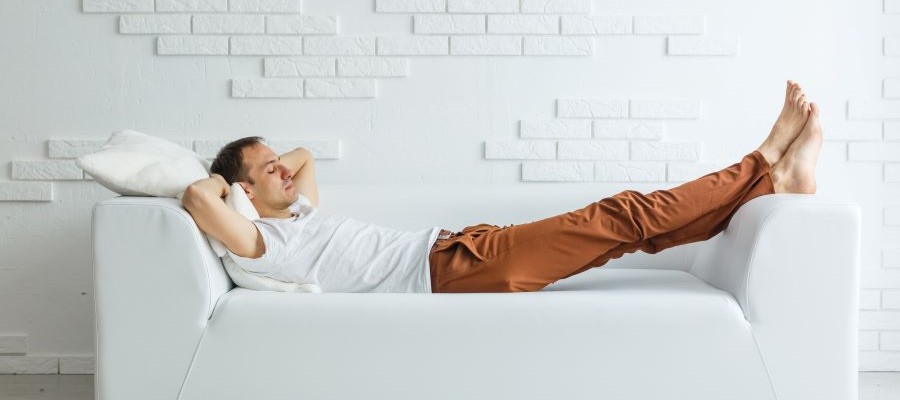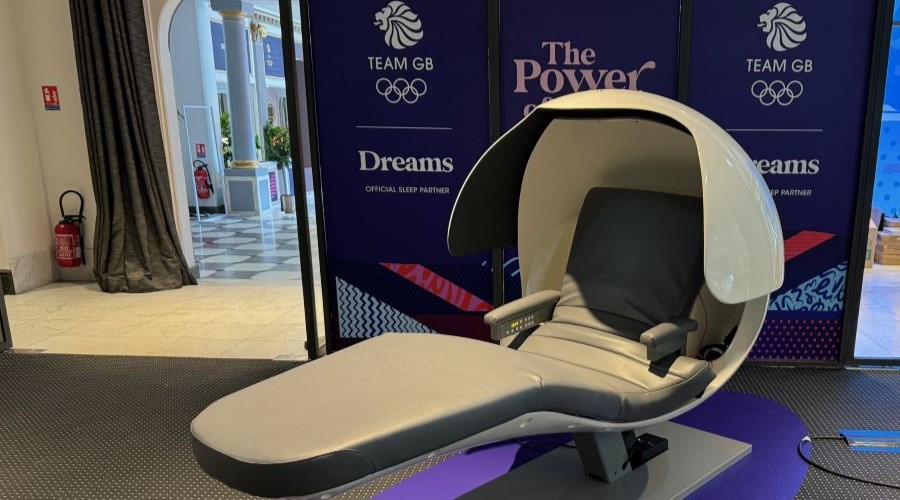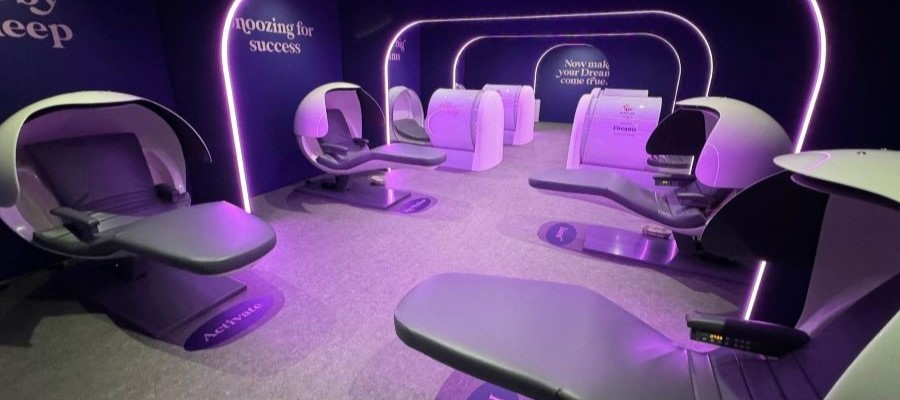A Sleep Retreat for Team GB at Paris Olympics
As Team GB and its athletes prepared for this summer’s Olympic games in Paris, they did not just train and eat well. They also slept well.
The Dreams Sleep Retreat at Team GB’s Performance Lodge included four MetroNaps EnergyPods and four Podtime Ultra sleep pods.
Why nap pods?
Greg Retter, Head of Performance Services for Team GB, spear-headed the idea to bring nap pods to support athletes during competition. “Travelling, competing in different time zones, and experiencing unfamiliar sleeping conditions can all have an impact on the amount of sleep athletes are able to get at an Olympic Games. It is always our aim to develop an environment that allows our athletes to perform at their best, and we are looking forward to taking this one step further in Paris with the support of Dreams.”
His proposal was met with enthusiasm by Dr. Luke Gupta, sleep scientist for the UK Institute of Sport who says, “Sleep is a pillar of athlete health, wellbeing and performance, and it is important athletes have the capability, and opportunity, to manage their sleep when put under strain at an Olympic Games. We know that taking a short nap can significantly boost alertness and have a positive impact on mental and physical performance, which is why the Dreams Sleep Retreat will be such a fantastic addition to the Team GB Performance Lodge.”
Read also: Light box therapy for jet-lag

How does a nap help athlete performance?
Studies have shown that a short nap – 20 minutes – can improve focus, reaction time and accuracy. When kept short and timed properly, a nap can have a marked impact on the performance of an elite athlete when often finishes are separated by hundredths of a second.
The purpose of a short nap is to limit the nap to the period where one drifts off to sleep and stays in a light stage of sleep. For most adults, the transition to deeper stages of sleep occurs after 20 minutes. Waking before you transition to a deeper stage of sleep helps you avoid “sleep inertia” or the grogginess that one can experience after a longer nap.
Read also: Sleep recovery for athletes

When should you take a nap?
An easy rule of thumb to follow is to time your nap approximately six- to seven-hours after you wake up in the morning. For many people, this aligns with an early afternoon nap between 1 p.m. to 3 p.m.
Not all naps are built the same way. A 20-minute nap can give you the quick burst of energy on an important training or competition day. However, on recovery days, your coach may suggest a longer, 90-minute nap.
With a longer nap, the body can slip into sleep stages 3 and 4 that provide a deeper level of healing and recovery. Everybody’s sleep is a little bit different but typically a full sleep cycle for an adult runs approximately 90-minutes each. This explains why a 90-minute nap is easier to wake from than a one-hour or even a two-hour nap.



